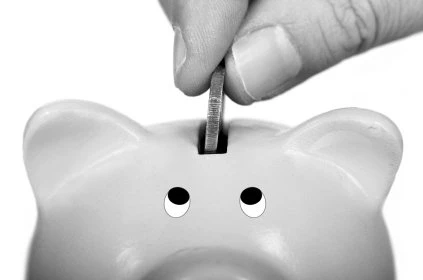 One of the most common fears people have about bankruptcy is the impact it will have on their credit scores. But how does bankruptcy affect your credit? Will it trash your credit score forever?
One of the most common fears people have about bankruptcy is the impact it will have on their credit scores. But how does bankruptcy affect your credit? Will it trash your credit score forever?
In reality, it depends. Bankruptcy may hurt your score initially, but over time it can give you a good chance to wipe your slate clean and start over. Minneapolis bankruptcy attorney Gregory J. Wald, Attorney at Law can help you evaluate your situation and discuss your options.
It’s Impossible to Predict How Far Your Credit Score Will Fall
The impact of a bankruptcy on your credit score depends on several factors, including your current credit score and the information on your credit report.
In 2010, FICO released more detailed information about how bankruptcy affects scores. Using mock scenarios, FICO showed that a bankruptcy could make a 780 credit score go down 240 points and a 680 credit score go down 150 points. In both situations, the people ended up with credit scores just below 550. However, if your credit score is already in the 500-range, your score may go down even fewer total points.
But these are just examples. Every situation is different, and you won’t really know how much your credit will drop until you file.
Differences Between Chapter 7 Bankruptcy and Chapter 13 Bankruptcy
These two types of personal bankruptcy may impact your score for different lengths of time. A Chapter 7 will be discharged within a few months and it will be off your credit report within 10 years. A Chapter 13 can take three to five years to complete, and it will remain on your report for seven years.
Rebuilding Your Credit After Bankruptcy
Even after you file bankruptcy, you can build your credit back up. Although your credit may be low after a bankruptcy, you can get small loans, pre-paid credit cards, and other credit lines to help you start building your credit again. In fact, within a few years, you may be back up to the 700-range even after bankruptcy.
Some steps you can take to build your credit after bankruptcy include:
- Open a secured credit card
- Obtain a small installment loan
- Make on-time payments to all debt
- Keep credit card balances under 30% utilization
Bankruptcy Will Affect Everyone Differently
If you had a large number of high value debts, then your credit score will be more drastically impacted than will someone who had only a few accounts included in a bankruptcy. The severity of your bankruptcy can impact the way a bankruptcy affects your credit. Your credit score will factor the amount of debt that you discharge and the proportion of negative to positive accounts.
Can I Eliminate All of My Debts?
While bankruptcy is geared to give you a fresh start, that does not mean that all debts will be completely eliminated right away. Some debts qualify for discharge, and others do not. Common debts that do qualify include credit card debt, medical debt, and more. Nondischargeable debts include child support, student loans, and alimony.
Chapter 7 bankruptcy will discharge most of your debt right away. However, with Chapter 13, you will be expected to pay much of it back over time. If there is dischargeable debt left over at the end of your payment plan, you may be able to discharge some of it through Chapter 13. Complete elimination of debts is often a goal, but is not always possible.
Will All Debts Be Wiped Clean From My Credit Report?
Although bankruptcy may mean that you no longer have to pay your debts if they are discharged, they do not disappear from your credit report. They will remain on your credit report for seven or 10 years, depending on the type of bankruptcy you filed, and impact your credit report over time. Their impact will be reduced over time, but you should anticipate each debt to still be represented on your credit report for years.
Bankruptcy Won’t Hurt Your Credit Forever
Although your credit score will take a hit initially with bankruptcy, it will not ruin your score forever. You can immediately begin rebuilding your score and start to pick up the pieces of your financial health. The credit counseling courses that you take with your bankruptcy will help you understand debt and how to manage your finances. While you shouldn’t amass a large amount of debt right away after a bankruptcy, you will soon be able to get car loans, house mortgages, and other credit lines even after bankruptcy.
Contact an Experienced Minneapolis Bankruptcy Attorney Today
There is no quick answer to the question of how does bankruptcy affect your credit, but a bankruptcy attorney can help you debunk the myths and know what to expect. If you’re struggling with debt, it may benefit you to temporarily sacrifice your credit score in order to wipe the slate clean and get your finances back on track. To learn more about how bankruptcy can help you, contact Gregory J. Wald, Attorney At Law.


